M.Sc. Cardiac Technology (5 Years) - Integrated

Course Overview
M.Sc. Cardiac Technology is a specialized postgraduate program designed to equip students with advanced knowledge and technical skills related to the diagnosis and treatment of cardiovascular diseases. The course focuses on understanding cardiac anatomy, physiology, and pathology, along with hands-on training in operating and managing sophisticated cardiac diagnostic and therapeutic equipment such as ECG, echocardiography, stress tests, Holter monitoring, and cardiac catheterization. Students are trained to assist in invasive and non-invasive cardiac procedures, monitor patient vitals, and work as part of multidisciplinary cardiac care teams in clinical settings.
The program also includes modules on patient care, emergency response, pharmacology, and healthcare ethics to ensure holistic training. With a strong emphasis on clinical internships and research, students gain real-time exposure in hospital environments, enhancing their competency and confidence. Upon completion, graduates can pursue careers as cardiac technologists, clinical researchers, educators, or healthcare administrators in hospitals, cardiac centers, and diagnostic labs. The course also lays a strong foundation for further specialization or doctoral research in cardiovascular sciences.
Course Objectives
The objective is to develop highly skilled professionals capable of supporting cardiologists in diagnosing and managing cardiovascular disorders through the use of advanced cardiac care technology. The course aims to provide in-depth knowledge of cardiac anatomy, physiology, and pathophysiology, along with hands-on training in operating diagnostic and interventional equipment. It emphasizes the development of clinical competencies in performing ECGs, echocardiography, stress testing, and assisting in cardiac catheterization procedures. Additionally, the program fosters critical thinking, research aptitude, ethical practice, and patient-centered care to prepare students for roles in hospitals, cardiac care units, diagnostic labs, and academic or research settings.
Learning Outcomes
Graduates of this program will:
- Demonstrate advanced knowledge of cardiac anatomy, physiology, and diseases.
- Operate and interpret cardiac diagnostic equipment like ECG, Echo, and Holter monitors.
- Assist in invasive and non-invasive cardiac procedures.
- Apply critical thinking and clinical decision-making in patient care.
- Follow ethical practices and effective communication in cardiac care settings.
- Conduct research and contribute to advancements in cardiovascular technology.
- Work efficiently as part of a multidisciplinary cardiac healthcare team.
Curriculum
Semester 1
- Anatomy (CC)
- Physiology (CC)
- Biochemistry (CC)
- Basics in Medical Physics& Electronics (AECC)
- English and Communication skills (SEC)
- Introduction to computers (SEC)
Semester 2
- Microbiology (CC)
- Pathology (CC)
- Pharmacology (CC)
- Environmental Science and Community Medicine (AECC)
- Medical Ethics & Safety (GE)
- Statistics and research methodology (SEC)
Semester 3
- Applied Anatomy and Physiology related to Cardiac Technology- Theory (CC)
- Applied Anatomy and Physiology related to Cardiac Technology - Practical (CCP)
- Pharmacology related to Cardiac Technology - Theory (CC)
- Pharmacology related to Cardiac Technology - Practical (CCP)
- Basic Principles of Hospital Management (GE)
- Comprehensive Viva: Applied Anatomy, Physiology and Pharmacology related to Cardiac Technology (AECC)
Semester 4
- Concepts of disease and outlines of clinical evaluation related to cardiac technology paper- I x-dynamic-component Theory (CC)
- Concepts of disease and outlines of clinical evaluation related to cardiac technology paper- I - Practical (CCP)
- Concepts of disease and outlines of clinical evaluation related to cardiac technology paper- II - Theory (CC)
- Concepts of disease and outlines of clinical evaluation related to cardiac technology paper- II - Practical (CCP)
- Health Care Management (GE)
- Comprehensive Viva: clinical in cardiac diseases (AECC)
Semester 5
- Cardiac technology (ECG, STRESS, HOLTER and basics of ECHO)-paper - I -Theory (CC)
- Cardiac technology (ECG, STRESS, HOLTER and basics of ECHO)-paper - I - Practical (CCP)
- Cardiac technology (ECG, STRESS, HOLTER and basics of ECHO)-paper - II - Theory (CC)
- Cardiac technology (ECG, STRESS, HOLTER and basics of ECHO)-paper - II - Practical (CCP)
- Hospital Products, Promotion, Sales & Public relations (GE)
- Physician's Office Management (GE)
- Comprehensive Viva: clinicals in ECG, STRESS, HOLTER and basics of ECHO (AECC)
Semester 6
- Cardiac Technology (ECHO, COLOR DOPPLER, STRESS ) paper -I- Theory (CC)
- Cardiac Technology (ECHO, COLOR DOPPLER, STRESS ) paper -I- Practical (CCP)
- Cardiac Technology (ECHO, COLOR DOPPLER, STRESS ) paper -II- Theory (CC)
- Interventional Radiological procedures and Basic angiography – Practical (CCP)
- Cardiac Technology (ECHO, COLOR DOPPLER, STRESS ) paper -II- Practical (CCP)
- Trauma and cardiac life support (SEC)
- Comprehensive Viva: clinicals in ECHO, COLOR DOPPLER and STRESS (AECC)
Semester 7
- Project / Systematic Review (DSE)
- Comprehensive viva (SEC)
Eligibility
- Should have completed the age of 17 years on or before 31st December of the year of admission.
- Candidate must have passed HSC/CBSE/ISCE in subjects of Physics, Chemistry, Biology/Botany Zoology and English individually.
Student Life
News And Events
100% Guaranteed Placement Assistance
Your career is our commitment!
